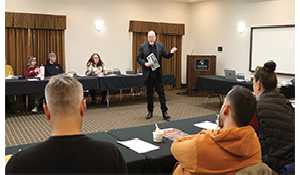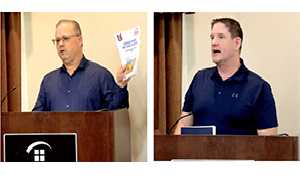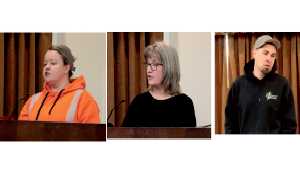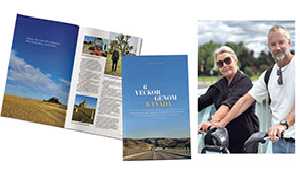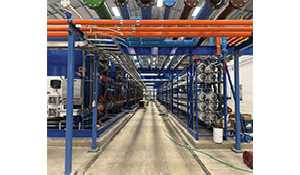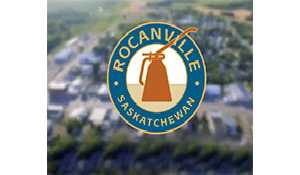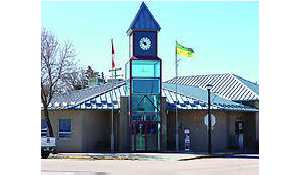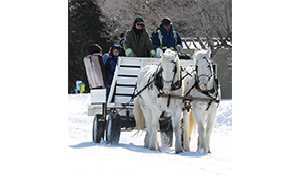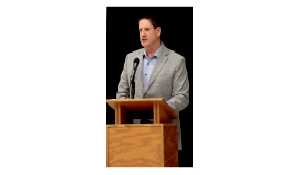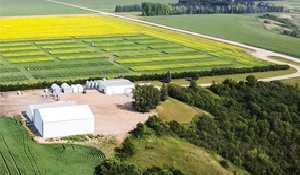Wagantall weighs the pros and cons
Federal Budget
November 10, 2025, 2:32 pm
Nicole Taylor, Local Journalism Initiative Reporter


The federal government released its budget on Tuesday.
The World-Spectator spoke with Yorkton-Melville MP Cathay Wagantall about her take on the budget:
What was your overall takeaway on this budget?
Itís obviously a bill of huge proportions, because itís taken so long to get it, and a lot of it was previously announced, so there is a challenge in going through it all and trying to determine what is what. Weíre still working on that, but with that being said itís pretty clear that this is a budget that is not affordable for Canadians. Itís not doing anything significant in regard to being an affordable budget for affordable lives. So the big focus is on the big macro picture of getting Canada moving again, which overall sounds wonderful, but the challenge from my perspective especially is the government taking on initiatives that it never shouldíve had to take on had it functioned properly in the first place, in regard to encouraging our economy and our investment in Canada over the last decade. Carney made promises, he promised to spend less that his previous cohort, and as Prime Minister he is actually spending $90 Billion more, which works out to $5,400 per household in Canada of extended spending. He promised to keep the deficit at the $62 Billion that was previously announced by the previous government, itís now at $78 Billion.
So of that $90 Billion more, extents of that is being done on borrowed money, so here we are. He said he was going to lower the debt/GDP ratio, but it shows that heís actually raising it, and inflation obviously in conjunction with that. He promised more investment, but the budget literally shows that itís continuing to collapse for Canada because he refuses to do what needs to be done so that Canada can be reinvigorated, and thatís of course to remove those strict regulations, punitive laws and investment taxes, because they are negative towards GDP growth and Canadians donít have the jobs they need.
Is there anything that you find that is positive in this budget?
We are happy to see that he is cutting back on the civil service. Heís cutting back to what it was pre-Covid, but from what we are seeing itís all by attrition and retirement at this time. So weíll have to see how far that ends up going. Itís not a huge amount of money but it will make a difference.
As far as other initiatives, a lot of it depends on investment by the private sector. The federal government is claiming that they have done everything they can do, now itís up to the private sector, but they are not creating the climate that private sector needs, especially in light of our economy up against the tariffs from the States. So we need to be competitive, and thatís where we really feel he hasnít done what he needs to doócut back on those corporate taxes, remove all those restrictions. We have C69, the tanker ban. The industrial carbon tax is really burdensome to companies that want to come in and invest in Canada but we are not on a competitive playing field.
If the Conservatives had tabled the budget what would they have done differently?
We would not have spent what they spent. For the amount of money that we are out, we are not at $1.35 trillion in debt and this budget alone is adding $10 million to our debt every hour and itís because of the debt interest. The interest on that debt from now up to the end of 2026 is $55.6 billion. So thatís more than we can spend on health care transfers. Itís more than all the GST the government will collect.
So first of all we wouldnít be in the circumstances we are in right now in regard to spending within our own country because there isnít anything to be seen for it. They are continuing the programs that they did start with daycare, with the dental, and with pharmacare, but they havenít increased that at all, so whatís there is being spent but there isnít further investment in those things.
So they are really pulling back what helps Canadians on a day to day basis. What we want to see is the economy restored so people can earn the money they need to earn to be able to take care of their families. We are all for providing food at schools for children who need it, and if you look at Saskatchewan, I did a tour around my riding, there are amazing efforts as far as food banks and food programs at schools already in place that are great, and so we fully support that, but the question is do we need what they want, which is a program which feeds every child at school rather than feeding them at home.
In the house I had to challenge them because the member speaking said that parents should be grateful. We are saving them $800 on their grocery bill by doing this. But thatís not what parents want. Parents want to be able to feed their own children.
So this is our angle is that we increase the productivity of our country through providing opportunity that was here that was let go by putting so many restrictions on investment in our own country. $50 billion has left Canada already under this government. So we would reinvigorate dropping corporate taxes, providing incentives that donít cost the government but enable investment to come into Canada because we are competitive.
What in this budget will have the most effect on your constituency and your constituents?
There are some specific resource and infrastructure projects that they have identified for Saskatchewan. One of them is a foreign copper mine in east central Saskatchewan. Itís saying 400 jobs and Indigenous partnership and it will be the first net zero copper mine. So critical minerals is very important to our province and to my riding so that appears to be a good investment.
The first and last mile fund, mine related transportation and power infrastructure they are putting money into that. The RCMP Heritage Centre in Regina, we are very supportive of that project, however we are not 100 per cent sure that the federal capital support is something that was already announced so we arenít sure if this was new money yet. And then something up in La Ronge, a hall they are building up there. So itís not a lot of stimulus, but it is stimulus.
Agriculture and trade, two very important areas, they have $108.8 million to support agriculture export markets, but it also includes modernizing the CFIA and creating more market access. We arenít sure what that means and how far does the $108.8 million go. But at the same time we are encouraging them to find ways to encourage private investment, not necessarily spend a lot of money right now in regard to federal dollars because those tax dollars are already so stretched.
AgriStability too, weíve been talking about program improvements for livestock and under represented producers, so they say there are going to be improvements there and that would be good to see.
And then trade diversification strategy, they intend to double exports and improve our Prairie export infrastructure. Weíre not sure exactly what the thinking is there, but obviously because of the tariffs itís really, really important that we repair that relationship with our trading partners, India and China and the U.S. But to find more diversified sources of export is important too.
There is a tax credit being extended for clean energy and climate competitiveness. It will benefit coal, potash and industrial emitters. I think this is something they are hoping will offset the reality of their industrial carbon tax, but they are increasing that industrial carbon tax, so on the one hand they are giving this tax credit but at the same time they are having to pay out more with the industrial carbon tax.
There are critical mineral expansions that align with Saskatchewan resources.
The money is there and itís for critical mineral expansion, but how do we get our share of that in light of how rich Saskatchewan is in that area.
And trade corridor investment, they are putting $6 billion toward national rail and export improvements. And so obviously we are landlocked and I certainly hope Saskatchewan will be highly considered for how that money is spent on the prairies.
There are some good things as far as potential at this point.


